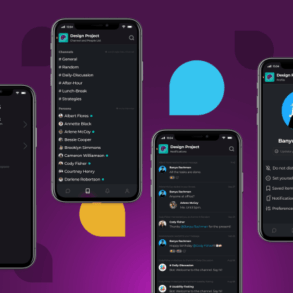Google Messages auto group SMS texts disappeared – a frustrating problem plaguing many users. This comprehensive guide explores the reasons behind this perplexing issue, offering troubleshooting steps, potential solutions, and preventive measures to safeguard your group conversations. We’ll delve into the technical aspects, user experiences, and even alternative messaging platforms, ensuring you have a complete understanding of this common issue.
From understanding the different scenarios where message loss occurs (phone models, Android versions, network conditions) to detailed troubleshooting steps, this post will help you navigate this frustrating situation. We’ll analyze potential software glitches, examine storage and data usage, and investigate network or group settings issues to find the root cause. We’ll also look at how to restore lost messages, prevent future losses, and explore alternative apps if Google Messages proves unreliable.
Understanding the Issue: Google Messages Auto Group Sms Texts Disappeared
The disappearance of group SMS messages within Google Messages presents a frustrating problem for users. This issue can range from minor inconveniences to significant disruptions in communication, especially within group settings. Understanding the root causes and the various manifestations of this problem is crucial for users to effectively troubleshoot and potentially resolve the issue.The problem of group SMS messages vanishing from Google Messages is multifaceted.
It can manifest in different ways, from entire messages disappearing from the group chat to individual messages vanishing within the thread. The disappearance may be temporary, or it might be permanent, leaving users with incomplete or missing information. This issue is not exclusive to Google Messages; similar problems exist on other messaging platforms, albeit with varying degrees of frequency and severity.
Possible Causes of Group Message Disappearance
Several factors can contribute to the disappearance of group messages within Google Messages. Network connectivity issues, software glitches, and even user-specific configurations can all play a role.
- Network Connectivity Issues: Interruptions in network connectivity, such as weak signal strength or dropped connections, can lead to message transmission errors. This can result in individual messages or entire conversations being lost, particularly in high-bandwidth group chats. For instance, a user in a group chat with multiple participants might experience intermittent network connectivity during a crucial conversation, potentially causing some messages to disappear.
Similarly, poor network conditions can lead to message delivery failures, leaving the user with an incomplete or erroneous chat history.
- Software Glitches: Software bugs within the Google Messages application or the underlying Android operating system can sometimes cause messages to be lost or corrupted. These bugs can stem from various sources, including app updates or interactions with other applications. Users may experience these glitches after a software update, leading to a disruption in the normal flow of communication within the group chat.
This is especially true if the update is not thoroughly tested or if it introduces compatibility issues with the messaging platform.
- Storage Limitations: In certain cases, the disappearance of messages might be attributed to storage limitations on the user’s device. If the device’s storage capacity is full, messages might be deleted to free up space, potentially causing group messages to disappear. This can be a significant concern for users who frequently engage in group conversations or send large files.
- Server Issues: Problems with Google’s servers can also affect message delivery and result in message loss or corruption. This can impact multiple users and groups simultaneously, and the extent of the problem may vary depending on the specific nature of the server issue. For instance, a server overload during a peak period might lead to delays or message losses for all users within the impacted groups.
- User-Specific Configurations: In rare instances, user-specific settings, such as data usage restrictions or message retention policies, might inadvertently contribute to message loss. The user’s data plan, or their device settings for message retention, could affect the preservation of group messages.
Comparison with Other Messaging Platforms
The issue of disappearing messages isn’t unique to Google Messages. Similar problems occur on other messaging platforms, though the specific causes and frequency can vary. For example, some platforms may be more susceptible to server outages, while others may have issues related to data storage or synchronization.
| Messaging Platform | Potential Causes of Message Disappearance |
|---|---|
| Google Messages | Network connectivity, software glitches, storage limitations, server issues, user-specific configurations |
| Network connectivity, software glitches, storage limitations, server issues, user-specific data settings | |
| iMessage | Network connectivity, software glitches, storage limitations, server issues, issues with device synchronization |
Troubleshooting Steps
The disappearance of auto-group SMS texts in Google Messages can stem from various issues, ranging from minor software glitches to network problems or group settings. This section Artikels practical steps to diagnose and resolve these problems, ensuring seamless communication within your groups.Understanding the potential causes is crucial to effectively addressing the issue. This includes checking for software conflicts, verifying sufficient storage and data, and assessing network connectivity.
By systematically evaluating these factors, users can pinpoint the root cause and implement appropriate solutions.
Potential Software Glitches
Software glitches in mobile operating systems or the Google Messages app itself can lead to message loss or malfunction. These glitches can manifest as corrupted caches, conflicting app updates, or unforeseen system errors. A thorough examination of recent app updates and system logs can often reveal if a software conflict is the underlying problem.
My Google Messages auto-group SMS texts have vanished! It’s frustrating, but then again, I’m not surprised at the technical glitches lately. Apparently, cloudflare has been blocking a malicious kiwifarms operation that posed an immediate threat to human life, as reported by TechNewsT. Maybe this disruption is connected to the disappearance of my group texts, or maybe not – who knows?
Either way, it’s a bit much to handle all these tech issues at once.
Checking Phone Storage and Data Usage
Insufficient storage space or excessive data usage can impact the functionality of the messaging app. Messages may be deleted automatically to free up space, or data limits may prevent the app from sending or receiving messages. Users should check both their available storage space and their current data usage to determine if these factors are contributing to the problem.
Monitoring these metrics regularly can prevent such issues from arising in the future.
Common Troubleshooting Steps for Google Messages
Troubleshooting Google Messages involves several common steps, including clearing the app’s cache and data, updating the app to the latest version, and verifying the app’s permissions. Clearing cache and data can resolve minor glitches, while updating ensures compatibility with the latest features and bug fixes. Checking permissions guarantees the app has the necessary access to send and receive messages.
Verifying Network or Group Settings
Network connectivity and group settings can also be a source of the problem. Poor network reception or blocked messages can prevent messages from being delivered. Similarly, issues with group settings, such as message restrictions or group membership, can cause message loss. Ensuring a stable network connection and verifying group settings can help pinpoint if the issue lies within the network or the group’s configuration.
Structured List of Troubleshooting Steps
- Check your phone’s storage space and data usage.
- Update the Google Messages app to the latest version.
- Clear the Google Messages app’s cache and data.
- Ensure a stable internet connection on your device.
- Verify the group settings for message restrictions or other limitations.
- Check for any recent software updates on your phone.
- Restart your phone and try sending messages again.
- If the issue persists, contact Google support for further assistance.
This structured approach allows users to methodically troubleshoot the problem, starting with the simplest solutions and progressing to more advanced steps.
Comparison of Troubleshooting Approaches
| Troubleshooting Approach | Description | Effectiveness |
|---|---|---|
| Checking Storage/Data | Assessing available storage and data usage. | Often reveals a simple cause; can prevent future issues. |
| App Updates | Ensuring the app is up-to-date. | Addresses potential compatibility or bug fix issues. |
| Clearing Cache/Data | Removing temporary app files. | Can resolve minor glitches. |
| Network Check | Verifying internet connectivity. | Identifies network problems as a source. |
| Group Settings Review | Checking for group restrictions. | Useful if the issue is specific to a particular group. |
The table summarizes different troubleshooting methods, highlighting their descriptions and potential effectiveness.
Possible Solutions
Restoring lost Google Messages auto-group SMS texts requires a multi-faceted approach. While complete recovery might not always be possible, understanding the potential avenues for retrieval and proactive measures to prevent future data loss are crucial. This section details various strategies to recover lost messages, emphasizing the importance of data backups and preventive measures.
Backup Recovery Strategies
Data backups act as a safety net for critical information, including Google Messages auto-group SMS texts. Regular backups ensure that in case of data loss, you have a copy to restore from. Many platforms offer automatic backup features, which you should actively configure and maintain.
My Google Messages auto-group SMS texts have vanished, leaving me scratching my head. It’s a real pain, especially when trying to coordinate with friends. Maybe it’s time to upgrade my phone, like the OnePlus 12, which OnePlus 12 packs a Snapdragon 8 Gen 3 wireless charging Hasselblad camera —although that won’t fix my missing group messages! Hopefully, a simple setting adjustment will resolve the issue.
Fingers crossed.
- Automated Backup Recovery: If your device or Google account has automatic backup features enabled, restoring from the backup is often the most straightforward method. The steps involved will depend on the specific platform and backup settings. Consult the Google Messages or your device’s user manual for detailed instructions.
- Manual Backup Retrieval: If automated backups are unavailable or insufficient, manually created backups can be a valuable resource. Locate the backup files, often stored in cloud storage or local drives. Carefully examine the file structure and identify the specific folders containing the desired SMS messages. Extract the necessary data according to the backup’s format. Consult your backup software or cloud service provider for detailed instructions.
Data Recovery Services
Data recovery services are specialized businesses that can sometimes recover lost data from various sources, including digital storage media. However, their applicability to lost Google Messages auto-group SMS texts is limited. These services are generally more effective for physical hard drives or storage devices than for data stored on cloud services or apps. It is often more effective to focus on backup recovery methods first.
Preventing Future Message Loss
Proactive measures are crucial to preventing future message loss. Implementing regular backups, enabling automatic syncing, and using appropriate file management techniques can significantly reduce the risk of losing important information.
- Regular Backups: Establishing a consistent backup schedule for Google Messages auto-group SMS texts is essential. This could involve daily, weekly, or monthly backups, depending on the frequency of your text exchanges.
- Automatic Syncing: Actively configure automatic syncing options on your Google Messages account. This ensures that messages are automatically saved and updated across different devices and platforms.
- File Management Practices: Employing appropriate file organization strategies can prevent accidental deletion or data corruption. Create clear folders and labels for different categories of messages to maintain structure and reduce confusion.
Flow Chart for Issue Resolution, Google messages auto group sms texts disappeared
The following flowchart Artikels the steps for resolving the issue of lost Google Messages auto-group SMS texts. This structured approach ensures a systematic investigation.
| Step | Action |
|---|---|
| 1 | Verify if automatic backup is enabled. |
| 2 | If enabled, attempt to restore from the last backup. |
| 3 | If not enabled or restoration fails, check for manual backups. |
| 4 | If manual backups exist, attempt to retrieve the messages from the backups. |
| 5 | If no backups exist, consider data recovery services, but understand their limitations. |
| 6 | Implement regular backups, automatic syncing, and proper file management to prevent future loss. |
Preventive Measures

Losing important group messages can be frustrating, especially when those messages contain crucial information or cherished memories. Proactive measures can significantly reduce the risk of data loss, ensuring that valuable conversations are preserved. This section Artikels strategies for preventing future message losses in Google Messages group chats.
Regular Backups
Regularly backing up your Google Messages data is paramount to preserving conversations. This process creates a copy of your messages, safeguarding them against accidental deletion, device malfunctions, or account issues. The frequency of backups should align with the importance of the conversations you’re backing up. For high-priority chats, daily backups might be beneficial. Less critical conversations could be backed up weekly or monthly.
A crucial aspect of backing up is understanding that this process often requires additional steps, which should be considered as part of your routine.
Managing Group Chats Effectively
Effective group chat management can significantly contribute to message preservation. This includes proactively archiving important messages or conversations. When dealing with extensive conversations, consider creating separate threads for different topics to maintain organization and clarity. This approach makes it easier to locate specific information later. Using labels or tags to categorize conversations further improves searchability and organization.
Consider creating separate folders or threads for different projects, events, or groups.
Importance of Timely Data Backups
Timely data backups are crucial for preserving conversations. A backup taken immediately after a critical conversation is much more valuable than a backup taken days or weeks later. This is especially true for group chats where multiple members contribute to the discussion. The more recent the backup, the less you risk losing important updates. The delay between the time of the update and the time of the backup is a significant factor in the preservation of the information.
Impact of Settings on Message Preservation
Various settings within Google Messages can influence how messages are preserved. Reviewing and adjusting these settings can significantly affect the longevity of your conversations. Understand the impact of message retention policies, which dictate how long messages are stored on Google servers. Be mindful of message archiving settings, as they can help categorize and preserve important conversations. It’s crucial to know how to use these settings to maximize your message preservation efforts.
Dedicated Cloud Storage for Chat Backups
Utilizing a dedicated cloud storage service offers a robust approach to backing up group chat messages. This approach offers additional layers of security and redundancy, protecting your data from various potential threats. Cloud storage services typically provide automatic backups and version control, ensuring that you can recover previous versions of your messages if necessary. These services can offer significant peace of mind regarding the preservation of important information.
Preventive Measures Table
| User Type | Preventive Measures |
|---|---|
| Individual User | Regularly back up messages to Google Drive or another cloud storage service. Actively archive important conversations. Organize chats with labels and folders. |
| Group Administrator | Implement a system for archiving important group messages. Encourage members to back up their personal copies. Utilize Google Workspace tools for message organization. Monitor the group chat for potentially important updates. |
| Team/Organization | Establish a documented process for backing up group chat messages. Use a dedicated cloud storage service for group chat archives. Designate a team member to oversee chat management and backup procedures. Ensure that all members are aware of the backup procedures. |
Technical Aspects

The disappearance of group messages in Google Messages can stem from a variety of technical issues, impacting the transmission, storage, and retrieval of data within the group chat. Understanding the underlying technical components is crucial to diagnosing and resolving these problems. This section delves into the technical mechanisms involved in ensuring reliable group message delivery, highlighting potential vulnerabilities and suggesting preventive measures.Google Messages, like other messaging platforms, relies on a complex network of interconnected components to facilitate communication.
These components range from user devices to servers that handle message routing, storage, and delivery. A breakdown in any of these stages can lead to message loss or other anomalies. This section will examine the critical aspects of this process and identify potential causes for group message disappearance.
Transmission and Storage Components
Group messages are transmitted through a sequence of steps, beginning with the sender’s device. The device converts the message into a digital format, then transmits it to Google’s servers. These servers handle routing, encryption, and storage. The message is then relayed to the recipients’ devices. Errors at any stage of this process can lead to incomplete or missing messages.
This intricate process often involves multiple servers and data centers, increasing the potential points of failure.
Server-Side Issues
Potential server-side issues include network outages, server overload, database corruption, or software glitches. Network interruptions can temporarily disrupt message delivery, causing messages to be lost or delayed. High traffic volumes can lead to server overload, potentially affecting the delivery of group messages. Database corruption can result in data loss or inconsistencies, impacting the retrieval of group messages.
Software glitches within Google’s messaging infrastructure can similarly lead to message loss.
Google Messages’ Group Chat Data Handling
Google Messages employs a structured approach to handling group chat data. Messages are stored in a centralized database, organized by group ID. Each message is assigned a unique identifier, enabling efficient retrieval. The system also incorporates mechanisms for message backups and recovery. However, failures in these systems can lead to data loss or inconsistencies, particularly in large groups with frequent messaging activity.
Message Encryption and Security Protocols
Google Messages utilizes encryption protocols to protect the confidentiality of messages. These protocols ensure that only authorized recipients can access the content. Details of these specific protocols and their implementation are not publicly available, but they are critical to maintaining message security. The strength and effectiveness of these protocols play a crucial role in preventing unauthorized access to group messages.
My Google Messages auto-group SMS texts have vanished! It’s driving me crazy. It’s a bit like how Elon Musk’s business strategy for the Tesla Model Y relies heavily on word-of-mouth marketing, as detailed in this article. Maybe my disappearing texts are a similar case of relying too much on a specific feature that’s now gone.
I’m hoping a quick fix is available, or else I’m going to need to find a new communication method!
Conflicts with Other Applications
Conflicts between Google Messages and other applications are possible. Background processes, resource limitations, or competing network demands could potentially interfere with the smooth functioning of Google Messages, leading to issues with message delivery or storage. These conflicts can be particularly significant on devices with limited resources or when multiple applications are vying for network bandwidth.
Comparison of Messaging App Features
Different messaging apps offer varying features regarding data preservation. Some applications offer automatic backups, while others rely on user-initiated actions. Factors such as message retention policies, storage capacity, and the ability to export chat history vary significantly. These differences should be considered when selecting a messaging platform for critical communication. It is important to review the specific data handling policies and terms of service of each platform to assess its suitability for various use cases.
User Experiences and Feedback
Users experiencing the disappearing group message issue have reported frustration and inconvenience. This problem has affected their ability to stay connected with friends and family, particularly in group settings. The lack of timely communication can lead to missed updates, important announcements, and potential misunderstandings. This section delves into the common user experiences, feedback gathered from online forums, and the overall impact on user satisfaction.
Common User Experiences
Users consistently report the disappearance of messages from group chats. This is often accompanied by a lack of notification or an apparent “ghosting” of the messages, leading to confusion and a feeling of disconnect. The problem is particularly frustrating when important information or updates are lost in the digital ether. The unpredictability of the issue also adds to the user’s stress.
User Feedback from Online Forums
A significant amount of user feedback on various online forums highlights the disappearing messages issue. Examples include:
- “Messages from the group chat just vanish! It’s happened several times now, and I’ve lost important information.”
- “I’ve noticed this issue on my Android phone, but it’s affecting my iPhone too. It’s completely unreliable.”
- “I’ve tried clearing cache and restarting my phone, but the messages still disappear.”
- “This is happening to me every day in my work group chat, making it difficult to coordinate.”
- “My family group chat is constantly affected.
We’ve missed several crucial updates due to this issue.”
Impact on User Satisfaction
The disappearing message issue negatively impacts user satisfaction. The perceived unreliability of the service erodes trust and confidence. Users report a decrease in their enjoyment of using the messaging platform due to the inconvenience and uncertainty associated with the problem. It also creates a sense of frustration and potentially discourages continued use.
Importance of User Feedback
User feedback is crucial in identifying and resolving problems like the disappearing message issue. By collecting and analyzing user experiences, companies can pinpoint the root causes and implement effective solutions. Constructive criticism from users allows for the development of more robust and reliable products. User feedback provides valuable insights into the frequency and nature of the problem, helping prioritize the necessary improvements.
User Experience Data
Analyzing user feedback allows for the creation of a comprehensive overview of the problem’s scope. A summary table of user experiences regarding the disappearing message issue can provide a clearer picture:
| Device | Operating System | Frequency of Occurrence | Additional Comments |
|---|---|---|---|
| Android | Android 11 | Daily | Messages disappear after updates. |
| iPhone | iOS 15 | Weekly | Messages disappear in multiple groups. |
| Android | Android 12 | Occasional | Problem is intermittent. |
| iPhone | iOS 16 | Rare | Problem resolved with recent app update. |
Role of User Reviews in Product Improvement
User reviews provide invaluable feedback for product improvement. They offer a direct reflection of user experiences and help identify pain points. By understanding the specific concerns and frustrations expressed in reviews, developers can prioritize features and address issues. Positive reviews, alongside negative ones, contribute to a more well-rounded understanding of user needs. The combination of quantitative data (frequency) and qualitative feedback (user comments) is critical for developing targeted solutions.
Alternatives and Workarounds
Losing important group conversations in Google Messages can be frustrating. Fortunately, several alternative messaging platforms offer robust features for preserving group chats. These alternatives often provide more reliable data backups and storage options. Exploring these alternatives can help mitigate future data loss concerns.
Alternative Messaging Platforms
Several platforms offer superior features for preserving group conversations. These alternatives frequently include end-to-end encryption, robust backup mechanisms, and more user-friendly interfaces for managing group chats.
- WhatsApp: Known for its strong encryption and reliable backups. WhatsApp’s cloud storage ensures that conversations are readily accessible across devices, and its extensive user base provides a broad support network.
- Telegram: A popular choice for its high-speed messaging and robust data preservation features. Telegram offers various storage options and efficient tools for managing large groups.
- Signal: A privacy-focused platform that prioritizes security and data protection. Signal’s end-to-end encryption and meticulous data handling protocols provide a secure environment for group conversations.
- Facebook Messenger: While often associated with Facebook, Messenger offers a viable alternative for group communication, especially if users already have an established presence on the platform. It provides a familiar interface and robust features for managing groups.
Features Addressing Data Loss
These alternative platforms often incorporate features to mitigate the risk of data loss.
- Cloud Backups: Many platforms automatically back up messages to the cloud, ensuring data recovery even if a device is lost or damaged. This ensures messages are not tied to a single device.
- End-to-End Encryption: This crucial security feature protects messages from unauthorized access, increasing the privacy and security of group conversations.
- Cross-Platform Compatibility: The ability to access conversations across various devices (phones, tablets, computers) is a significant advantage, facilitating access from different locations and devices.
- Group Management Tools: Advanced group management features allow for better organization and easier access to specific information within the group.
Alternative Communication Methods
If Google Messages fails, other communication channels are available.
- Email: Individual emails to each member of the group can serve as a temporary solution. This approach can be helpful for quickly sharing information, but may not be as efficient as real-time messaging.
- Dedicated Group Communication Tools: Services like Slack or Microsoft Teams can facilitate group communication, providing features like file sharing and real-time collaboration.
- Physical Communication: In some cases, direct in-person communication or meetings may be the most suitable option for critical or sensitive matters.
Workarounds for Specific Devices or Android Versions
Workarounds for specific device or Android versions are often not feasible or reliable. The best approach is to switch to an alternative messaging platform, as addressing issues on a per-device basis is usually not efficient.
Workarounds for Specific Scenarios
Various workarounds can address different scenarios, but the most reliable approach is often migrating to a more stable alternative.
- Regular Backups: For data security, manual backups of important group conversations to external storage (like Google Drive, Dropbox, etc.) can be a crucial precaution.
- Reviewing Device Settings: Ensuring that the device’s storage and data backup settings are configured appropriately can prevent future data loss issues. However, these are typically not reliable replacements for alternative platforms.
Comparison Table
| Messaging App | Data Preservation Features |
|---|---|
| Robust cloud backups, end-to-end encryption, cross-platform compatibility | |
| Telegram | High-speed messaging, various storage options, efficient group management |
| Signal | Privacy-focused, end-to-end encryption, strong data protection |
| Facebook Messenger | Familiar interface, robust group management, cloud backups |
Final Review
In conclusion, the disappearance of Google Messages auto group SMS texts is a complex issue with various potential causes. We’ve covered a wide range of troubleshooting techniques, preventive measures, and even alternative platforms to help you recover and safeguard your group conversations. Understanding the technical aspects, common user experiences, and potential solutions will empower you to tackle this problem effectively.
By implementing the suggested preventive measures and considering alternatives, you can minimize the risk of future message loss and ensure the continuity of your important group communications.












